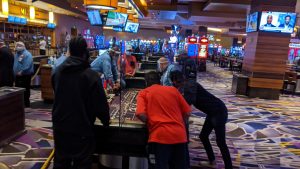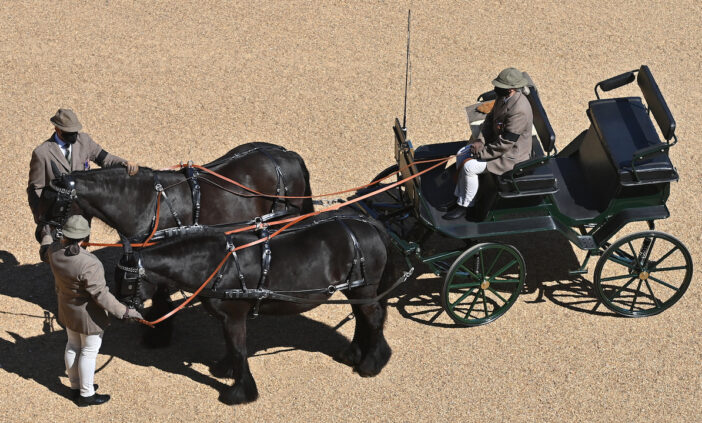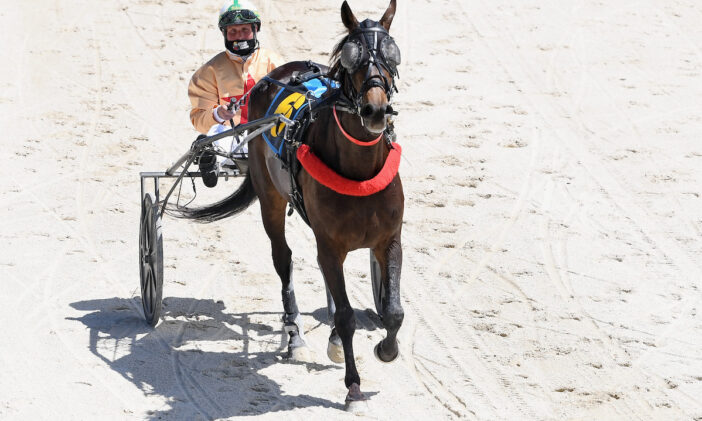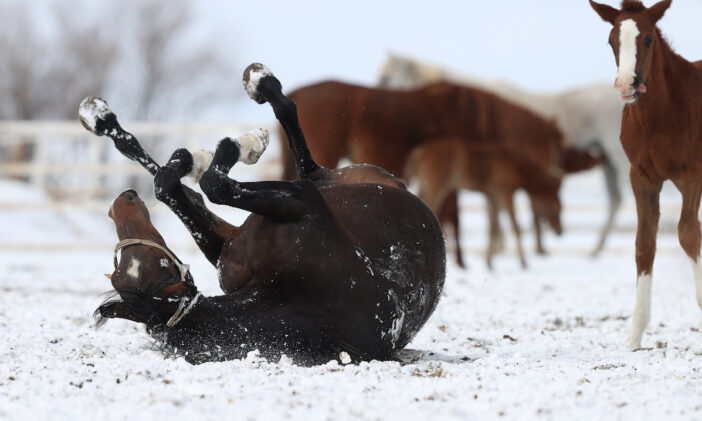Friday morning at the MGM Grand Detroit felt like the opposite of a grand reopening — crowds were sparse, there were no lines to enter the property, and despite the thrum of dance music blasting throughout, the casino floor felt downright sleepy.
But perhaps that was the point.
Like Detroit’s other two commercial casinos — MotorCity Casino Hotel and Greektown Casino-Hotel — the MGM Grand had been forced to close on March 16, when Michigan Gov. Gretchen Whitmer used her emergency powers to shut down all non-essential businesses in response to the COVID-19 pandemic. But unlike MotorCity and Greektown, the MGM Grand Detroit did not reopen to the public on Wednesday, the earliest day allowed by one of Whitmer’s executive orders.
Instead, the MGM admitted a limited number of invite-only VIPs on Wednesday and Thursday and did not open its doors to the public until Friday at 10 a.m. Gone were Wednesday’s lines of cars, which queued around the block on Grand River Avenue to get inside MotorCity, and gone were the crowds of giddy gamblers, eager to lay the first legal bets Detroit had seen in more than four months.
And in the absence of Wednesday’s hoopla, MGM Grand Detroit may have hit on something just as valuable as that initial surge of customers — a casino experience that appeared to do everything in its power to keep customers safe during the ongoing pandemic.
Advanced COVID-19 precautions

“Together with the other two Detroit casinos, we felt like we wanted to take a conservative approach in terms of the protocol that we’re agreeing to,” MGM Grand Detroit President David Tsai told the Detroit News prior to Friday’s reopening. “We want the opportunity to demonstrate that you can open a business and do it safely. We will be enforcing these protocols and enforcing compliance.”
Those protocols include Michigan’s strictest-in-the-nation 15% capacity limit for commercial casinos, along with now-standard safety measures like mandatory facial coverings, temperature checks for guests and employees alike, and plexiglass barriers between players and dealers at table games.
Some of MGM Grand Detroit’s health precautions, however, went noticeably above and beyond those available elsewhere. Hand-sanitizer stations are prevalent throughout Michigan’s reopened tribal casinos as well as the Detroit’s commercial casinos. But unlike the gallon-size pump containers common at rival casinos, nearly all of MGM’s hand sanitizer dispensers were automatic. Similar no-touch technology made entering the casino feel safer, thanks to blue-lit sensors that allow visitors to open automatic doors with the wave of a hand.
The use of hands-free technology, combined with thoughtful touches like separate doorways for entering and exiting the casino and signs posted encouraging high-risk customers to visit during early morning weekday hours, made MGM Grand seem like the casino where Detroit’s germaphobes might feel most comfortable during the pandemic. The property didn’t just shut down roughly half of its slot machines to promote social distancing, it also shut down urinals in the men’s room.
And even though Detroit’s casinos have been limited to operating at just 15% capacity upon reopening, the fact that MGM, MotorCity, and Greektown have all brought back close to 50% of their workforce suggests they anticipate serving a greater volume of visitors in the near future.
“I think that would have to mean that internally, they’re all planning on a ramp to something far north of 15%,” said Alex Calderone, a managing director of the Calderone Advisory Group, a financial consulting firm in Birmingham. “I don’t think the capacity limit will last forever, and as that vise grip on capacity is loosened, it will certainly become easier for the casinos to turn a profit.”





